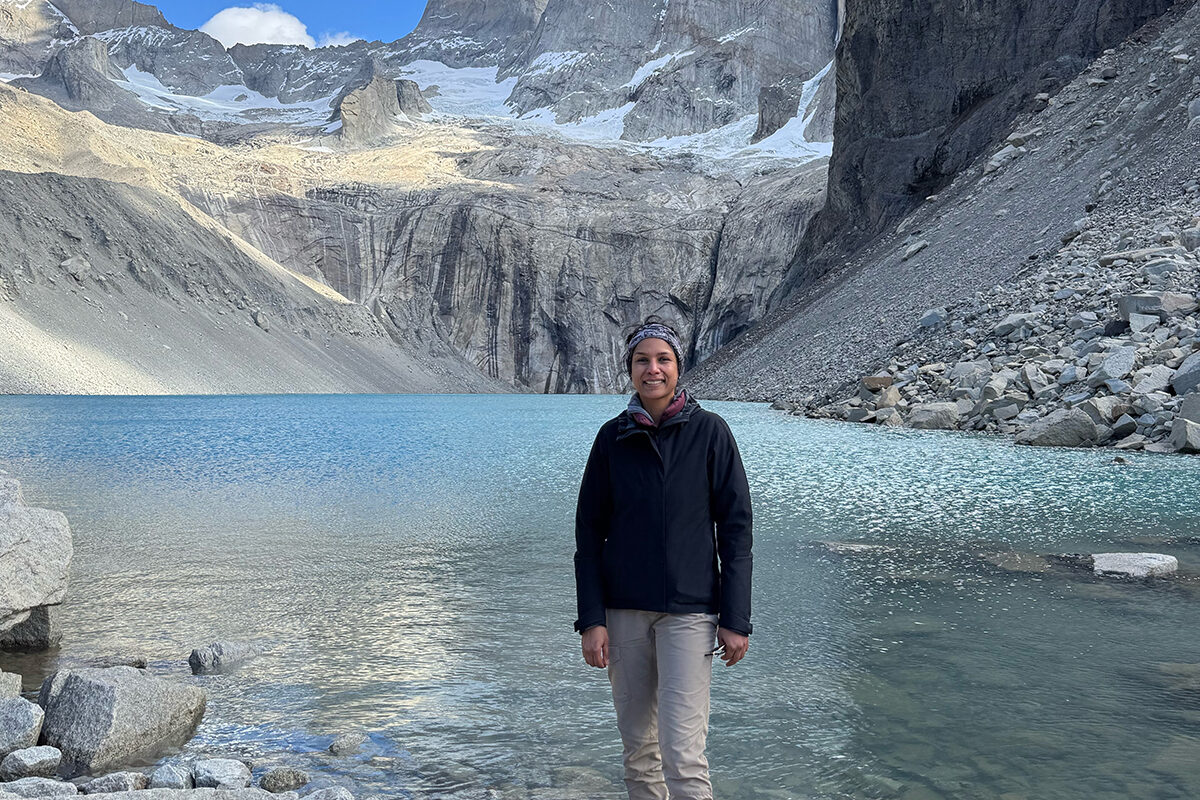
“I feel like I’m a person who goes with the flow,” said Suhasni Gopalakrishnan, Director at Allogene Therapeutics in San Francisco.
Going with the flow has led Gopalakrishnan to many fascinating places. Originally from Chennai in southern India, she grew up in a family of scientists and engineers.
“I was always interested in science and math,” she said. “And when it came time for me to decide what major I wanted to pursue for my undergraduate studies, I was choosing between conventional engineering paths or something else. And that something else happened to be biotechnology, mostly because I felt like there were way too many electrical and computer engineers in my family!”
After graduating from PSG College of Technology with a bachelor’s of technology in biotechnology, she pursued summer research opportunities at the Indian Institute of Science and Tata Institute of Fundamental Research before entering the PhD program in biochemistry and molecular biology at the University of Florida. For her thesis project, she focused on gene regulation in stem cells, as well as in cancer.
“When I was wrapping up my PhD work, that was also the very first time induced pluripotent stem cells, or iPSCs, were made by Shinya Yamanaka,” she said. “That really changed the field of stem cells. And I applied broadly to cell fate biology labs focused on stem cells. And honestly, it was a very competitive field at that time, so I didn’t manage to get an opportunity.”
So Gopalakrishnan went with the flow: “If I didn’t get to study gene regulation in stem cells,” she said, “I was open to studying cell fate in a particular cell type.”
For her first postdoc, she studied how gene regulation influences immune cell development and also gained experience with gene editing in a lab at Washington University in St. Louis.
When her husband moved to Los Angeles to do postdoctoral training in the physics department at Caltech, she again went with the flow and took the opportunity to transition back into the iPSC field. She received a California Institute for Regenerative Medicine (CIRM) training grant to pursue a second postdoc in the labs of Neil Segil and Justin Ichida in the Department of Stem Cell Biology and Regenerative Medicine at USC.
“The CIRM grant was a boon to many, many people, especially because it didn’t have any specification of immigration status, because a lot of the NIH grants can have that as a requirement,” she said. “These days, it’s even more concerning in terms of funding for a lot of members of the immigrant community that come here for better opportunities. So the CIRM grants really helped support a broad range of students and postdocs to help further research in the regenerative medicine area. And the CIRM grant is part of how I was able to stay and continue the work in Neil and Justin’s labs.”
Gopalakrishnan converted both iPSCs and skin cells into the sensory hair cells of the inner ear, which are essential for hearing. These cells served as a testing platform for discovering drugs to protect inner ear cells from damage caused by antibiotics such as gentamycin, which is known to contribute to hearing loss.
“I really resonated with the project that I worked on at USC, because it was very applied science,” she said. “That concept of working on something that’s tangible and useful in the near term was something that I valued. So I applied to a variety of industry jobs in the regenerative medicine space, the iPSC field, and, funnily enough, I did not get any opportunities there.”
One of her former Washington University colleagues, who shared a similar scientific background, advised Gopalakrishnan to shift the focus of her job search and market herself as a gene editor. She was quickly hired by Pfizer in San Francisco to edit chimeric antigen receptor (CAR)T cells for cancer immunotherapies. Less than a year later, Pfizer divested this team in order to form a new company, Allogene Therapeutics, which continued developing donor cell-based or “allogeneic” CAR T immunotherapies.
“I feel grateful to be able to contribute to something that helps any kind of patient,” she said. “My husband had acute lymphoblastic leukemia, and he passed away, and my dad had lymphoma as well, and he also passed away. When I got this job, and the lead indications at that time were for lymphoma, and it had been approved for other companies in leukemia and lymphoma, I felt like maybe this is what I’m meant to do. So I took that as a sign to be happy about the role that I got at Pfizer, and since then, I’ve really enjoyed every aspect of drug development in the cell therapy space.”
CIRM’s investment in Gopalakrishnan’s advanced training in regenerative medicine continues to pay dividends in California. At Allogene, Gopalakrishnan drives biotech innovation and develops therapies that can make a real impact on patients’ lives. Later this year, a product called ALLO-329, which she helped design and develop, will go into clinical trials to treat patients with rheumatology disorders.
“That’s my first science baby,” she said.
Despite the demands inherent in bringing new therapies to the market, work-life balance is an important part of the company’s culture. In her free time, Gopalakrishnan enjoys traveling, spending time outdoors, reading, cooking, gardening, and teaching yoga classes for friends.
“When I first came to the job at Pfizer, my managers said that the vision is to do the best you can in the time that you’re given, meaning everybody has a life,” she said. “Most people have families and kids, and so it’s not expected for people to work unreasonable hours. So that sets a tone for productivity, efficiency and discipline. And then you can manage your free time as you wish.”
